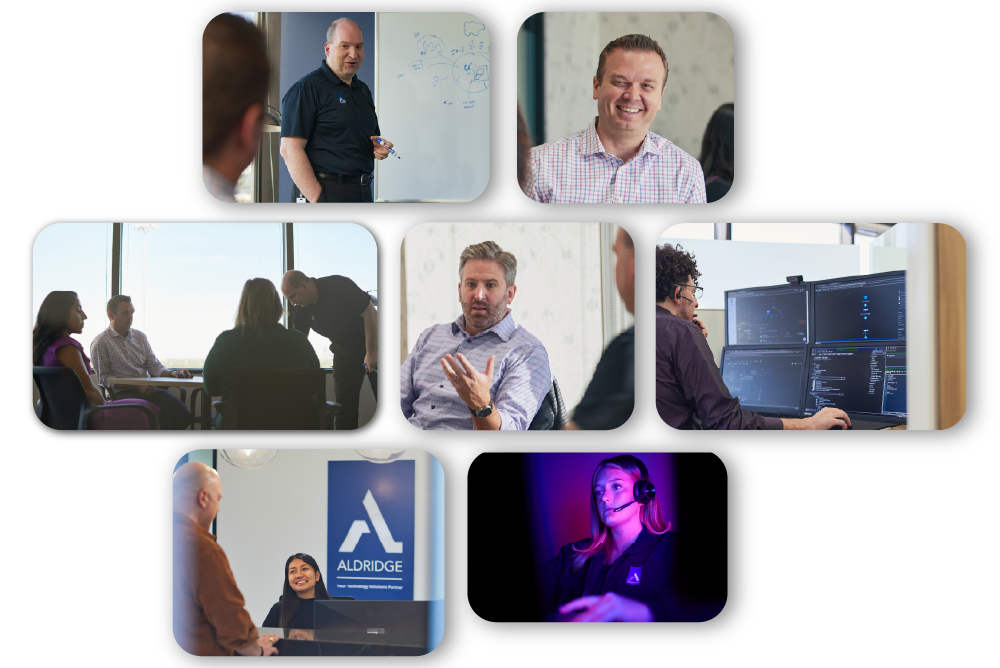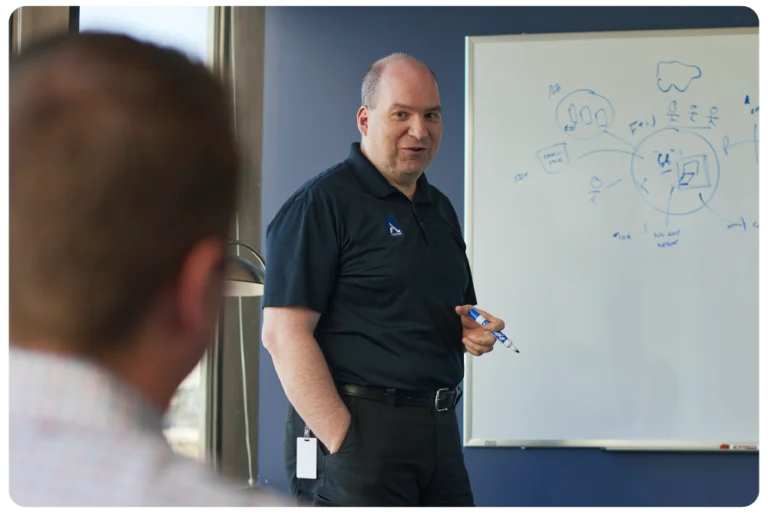Whether you’re implementing an ERP for the first time, or you’re making a switch to a new, better system, you’re taking a step to drive better results. Unfortunately, that plan doesn’t pan out for many manufacturers whose projects either fail or are stalled due to poor planning and preparation. At the end of the day, the ROI of an ERP implementation is determined by how well the system is customized to fit your business. The technology will not provide value straight out of the box.
This is especially true if you’re a manufacturer whose processes and data elements are complex, often unique to your industry, and can vary drastically from one company to another.
We have covered why manufacturers need more than an accounting system to stay competitive in our previous blog, In this post, we will cover why the customization piece of the ERP implementation process is a non-negotiable if you want to achieve the expected ROI.
ERP Technology Alone Will Not Deliver Value
An ERP’s value is realized only if it properly integrates your organization’s people, processes, and technology. If you’re experiencing product quality issues, an out-of-the-box ERP will not fix the problem. Without clear responsibilities and processes across the supply chain, the accountability and ownership of production flaws will remain a pain point even after the new system is implemented.
Your organization’s operations and people have to be aligned before an ERP is even selected. Then, solution you choose has to be customized to fit your business processes and systems in a way that improves day-to-day operations, while remaining scalable and capable of supporting future business initiatives.
While this is not an easy task, many small businesses are leveraging consulting services to ensure things are done right the first time. In fact, 65% of small businesses are engaging ERP consultant services to position implementations for success. For some, this resource is the firm’s Chief Information Officer (CIO) who is responsible for leading the ERP implementation strategy and ensuring the project stays on-time and in-budget.
Your CIO will use the information gathered during the discovery and selection stage of implementation to create a realistic ERP project roadmap, which will take the necessary customizations into account and plan for sourcing the right resources at the right time.
Maximize Your ERP’s ROI: Customization is Key
Your business has its own unique processes and needs. Rarely is a solution ready for use right out-of-the-box, and an ERP is no exception. Unfortunately, customizing an ERP solution to speak the language of your business isn’t a simple task. But, if you skip this step, you can count on project delays and functionality issues down the road.
How much does it cost to customize an ERP?
The complexity of your business and your leadership team’s vision for the future determines how much it will cost to properly customize your ERP solution. When manufacturers are looking for an ERP, their top three concerns are:
- Ease of use
- Functionality
- Total Cost of Ownership
They want the ERP to work for their business and play well with other systems. Surprisingly, the total cost of ownership was ranked number three on this list of concerns. While cost remains important, it’s not the primary focus here. Because cutting costs is not the purpose of an ERP implementation, reducing costs by driving efficiency is.
An ERP is a core piece of your business, which means there are generally more people and processes that need to fluidly integrate for the technology to deliver value. That said, every dollar spent on an implementation should either reduce costs, manage risk, increase your revenue, or enhance your ability to scale.
Some of the lowest-cost ERP implementations our CIOs have seen generally ranged from $50 to $100 thousand to complete. However, there were cases where 50-100 person companies implemented multimillion-dollar ERP projects.
Unfortunately, many manufacturers underestimate the customization necessary to enable an ERP to work for their business. Sixty five percent of ERP projects exceed their budget because the solution needed to be modified to improve usability, but the need for these modifications was only realized after the implementation had already begun.
Read our previous blog, “What Manufacturers Need to Know About an ERP Implementation,” to learn more about what it takes to deploy an ERP successfully.
While it’s not ideal to go over budget, doing things right the first time is usually less expensive than cutting costs and rushing the ERP project solely to meet a roll-out deadline. Thirty-one percent of businesses that exceeded their implementation budget were happy with their results. That’s because an ERP solution is a strategic decision that should be positioned to realize value long after it has been rolled out to the rest of the organization.
Going overbudget is better than abandoning the project all together, but it’s not ideal. By involving a CIO before the ERP is even selected, they can help you create an ERP project roadmap that minimizes delays and unexpected costs.
How long does it take to customize an ERP?
The timeline for an ERP implementation depends on the complexity of your manufacturing systems. We have seen the customization process take anywhere from a few months to a few years for midsized businesses with an average of 50 to 100 members.
It’s no surprise that 74% of ERP implementations take longer than planned. Companies often underestimate the amount of time an ERP project will take because they do not involve a CIO early in the discovery and selection process.
Your CIO should be involved in planning for and choosing an ERP based on the information they gather around your company’s current and future initiatives, IT environment and systems, operations and production processes, business risks, and any other considerations that may impact its long-term value.
How long does it take to reap the benefits of an ERP?
When you’re considering an ERP, you’re looking to improve your business by investing in the right technology. But this may not happen immediately. For some, it never happens at all.
According to Panorama Consulting, it takes an average of 11 months after go-live for SMBs to realize the benefits of a well-implemented ERP.
However, organizations should continue to realize benefits in the years following the roll-out as new system benefits are identified that support rising business initiatives. This is only possible if the ERP project team prioritized continuous improvement during implementation, accounting for current and future business goals.
So, what does it take to implement an ERP that aligns with your manufacturing business? We explain the basics in our blog, “4 ERP Implementation Steps for Manufacturers.”
Get the Most Value from Your ERP Investment
If you’re looking to implement an ERP solution, or you’re not sure if your current ERP is doing what it should for your firm, ask for help from an expert. Our IT consultation team can communicate, collaborate, and set expectations for your company to customize an ERP on-time and on-budget.
Our dedicated CIOs and team of specialized resources understand the challenges small and midsize manufacturers face, and they know what it takes to make technical changes that provide value now, and in the future. Contact an Aldridge representative today to learn more about what it will take to customize an ERP for your business.






